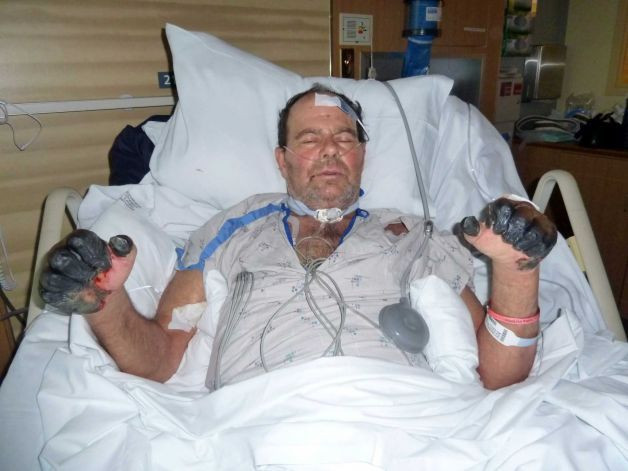US Man Who Survives Bubonic Plague From Cat Bite Will Have Fingers and Toes Amputated

The 59-year-old man who contracted a rare case of the bubonic plague after trying to take a mouse from the jaws of a stray cat has been released from the hospital after spending a month in intensive care.
Paul Gaylord, a welder from Prineville, Oregon contracted the infamous bubonic plague that killed 75 million Europeans, wiping out a third of the whole population, in the 14 century, trying to save Charlie, a stray cat his family had adopted, from choking on a dead rodent.
While Gaylord is no longer in critical condition and he is lucky to be alive, his future is looking grim.
The welder's once-sturdy hands have been shriveled and blackened by the infection, and doctors are still waiting to see whether they can save a portion of his fingers.
"I don't think I can do my job," he told the Associated Press in a phone interview from the St. Charles Medical Center in Bend, Ore. "I'm going to lose all my fingers on both hands. I don't know about my thumbs. The toes – I might lose all them, too."
Gaylord had initially though he had contracted the flu when he developed a fever after the bite, and when antibiotics failed to work and his lymph nodes began to swell into the size of lemons he was rushed to the hospital.
Gaylord's mother Almeda, 81, told OregonLive.com just how close her son came to death.
"His heart stopped. His lung collapsed. They told us he wasn't going to make it," she said.
Gaylord had spent nearly a month on life support and his condition had become so bad that his son Jake had flew in from Austin, Texas just to say goodbye, and his wife organized a baptism for him as he always regretted not being christened as a child.
"I was delirious," said Gaylor said. "Things didn't seem real. The clock ran backwards."
Gaylord said he will have to learn to how to walk again and to use his fingerless hands.
"It will be a long rehab," he said. "I have to learn to do everything again."
While the bubonic plague has long been associated with filthy, unsanitary conditions and rodent infestations, recent research suggests that the "black death" plague is on the increase in affluent U.S. communities. Experts said that as more people move to natural environment where carriers of the disease, like squirrels and wood rats, live, infection increases.
The disease is caused by the Yersinia pestis bacterium, which spreads through flea bites, can cause gangrene which often results in amputation if not death. There have been about 11 cases of the plaque a year in the U.S. since the 1976 and Gaylord is the 17th person in Oregon to be infected since 1934.



























